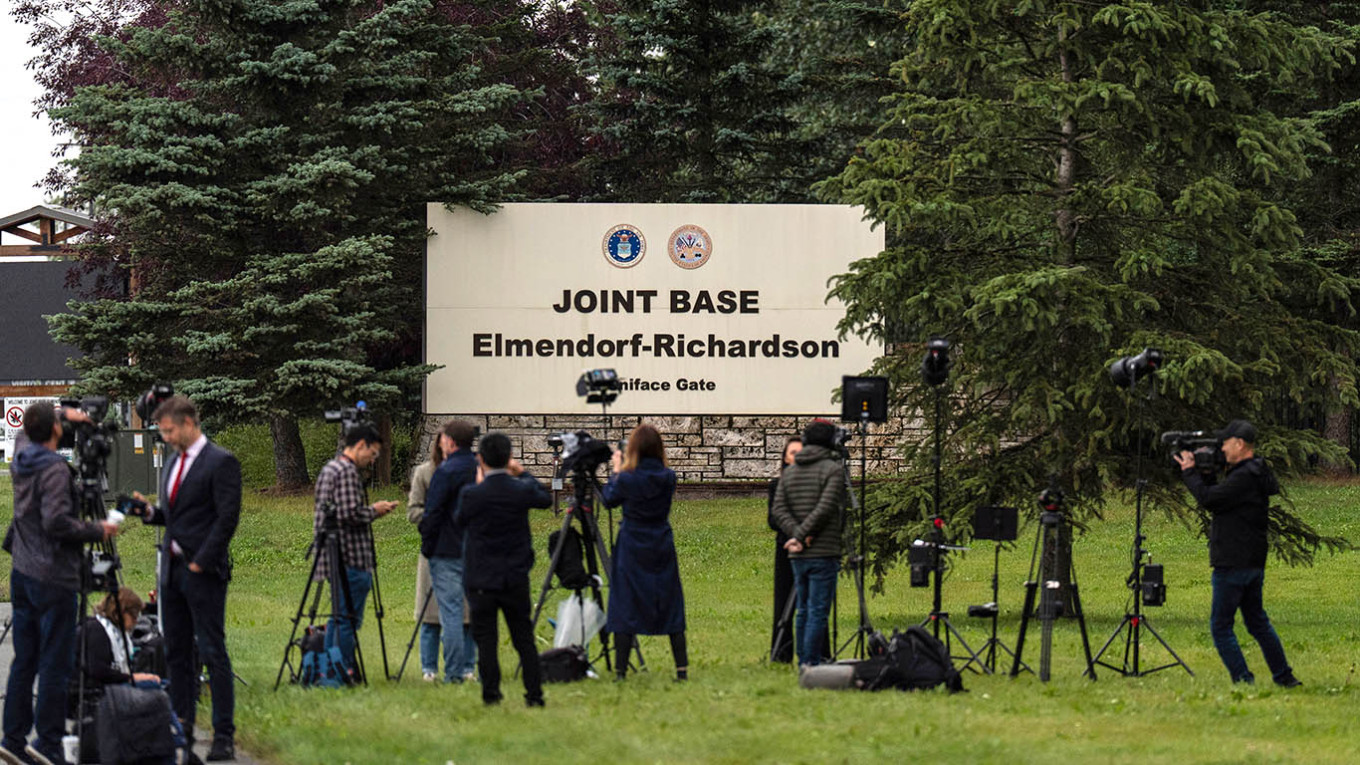The presidents of the United States and Russia, Donald Trump and Vladimir Putin, are set to meet at a U.S. air base in Alaska on Friday to discuss the war in Ukraine.
This marks the first summit between the sitting presidents of the two nations in over four years, and hopes are high. However, there is still a significant divergence between Moscow and Kyiv regarding potential resolutions to the conflict.
This visit will be Putin’s first to a Western country since he initiated the invasion in February 2022 and his first trip to the U.S. in a decade.
Here’s an overview of each leader’s objectives for the discussions:
For Putin, this meeting provides a chance to reinforce Russia’s firm conditions for concluding the conflict, especially after experiencing prolonged Western isolation since the invasion.
In a peace proposal released in June, Russia demanded that Ukraine withdraw its military from the Kherson, Luhansk, Zaporizhzhia, and Donetsk regions, which Moscow claims to have annexed in 2022. Ukraine has firmly rejected this proposition.
Additionally, Russia has urged Ukraine to cease its military mobilization, abandon its aspirations to join NATO, and for Western countries to immediately halt all arms supplies—demands that critics have labeled as tantamount to surrender.
Beyond territorial issues, Russia is also insisting that Ukraine safeguard the “rights and freedoms” of Russian speakers and take measures against what it terms the “glorification of Nazism.”
Furthermore, Russia seeks the lifting of Western sanctions.
Ukraine dismisses Russia’s claims regarding Nazism as ludicrous and asserts that it already upholds the rights of Russian-speaking individuals.
Ukrainian President Volodymyr Zelensky will not participate in the summit, yet he has emphasized that no peace agreement can be reached without Ukraine’s involvement, characterizing the meeting as a “personal victory” for Putin.
Ukraine demands an immediate and unconditional ceasefire across land, sea, and air as a fundamental condition for initiating peace discussions.
It insists that both parties release all prisoners of war and has called for the return of Ukrainian children whom it alleges have been unlawfully abducted by Russia.
According to Ukraine, thousands of children have been forcibly relocated to Russian-occupied areas since the conflict erupted, where they have often been adopted into Russian families and granted Russian citizenship.
Although Russia denies allegations of kidnapping, it confirms that numerous children are indeed located in its territory.
Ukraine states that any agreement must contain security assurances to prevent further Russian aggression, as well as provisions allowing for troop deployment on its soil without restrictions.
It contends that sanctions against Russia should be lifted only gradually, with mechanisms in place for their reimposition if necessary.
Trump had earlier claimed he could resolve the war in “24 hours” after taking office in January. However, after eight months and various discussions with Putin, including multiple visits from U.S. envoy Steve Witkoff to Russia, he has not secured significant concessions from the Kremlin.
The summit represents his first chance to negotiate a deal face-to-face.
On Wednesday, the U.S. president, author of “Trump: The Art of the Deal,” warned that Russia would face “very severe consequences” if it did not pause its military actions.
Initially, Trump indicated that there would be some “land swapping” at the negotiations, but he seemed to retract that statement after consultations with European leaders on Wednesday.
Trump expressed a desire for a “very, very quick” ceasefire.
However, the White House has tempered expectations for a major breakthrough, presenting the meeting as more of a “listening exercise” for the former reality TV star.
“If the first one goes well, we’ll have a quick second one,” Trump suggested, indicating that Zelensky might participate in a future summit.
Despite providing military assistance to Ukraine and welcoming millions of Ukrainian refugees, European leaders have been excluded from peace talks that could shape the security landscape of the region going forward.
No European representatives were invited to the last three meetings between Russian and Ukrainian officials in Istanbul or to the U.S.-Russia discussions in Riyadh in February.
Last week, leaders from Britain, France, Italy, Germany, Poland, Finland, and the EU Commission declared that meaningful peace discussions are impossible without Ukraine’s participation.
“Territorial issues related to Ukraine can only be negotiated by the Ukrainian president,” stated French President Emmanuel Macron following his conversation with Trump on Wednesday.
Macron and U.K. Prime Minister Keir Starmer have indicated they might be prepared to send peacekeepers to Ukraine once hostilities cease, a proposal that Russia has strongly opposed.

